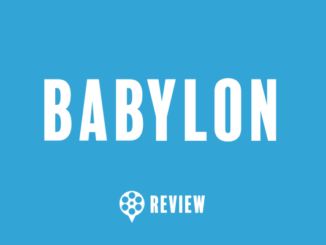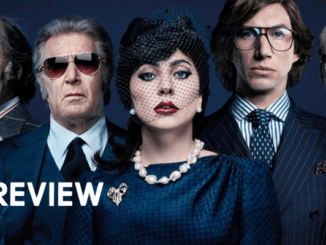Of all the MCU titles that have hit the big screen, I probably had the least interest in Thor. I was familiar with the character from the comic books but the blending of Norse mythology, comic books, and Shakespeare never appealed to me. Bringing this character to the big screen was certainly ambitious since he probably didn’t have the same mainstream appeal of the other Marvel characters to make it to film but a part of me didn’t think any of it would work.
When I first saw Thor in 2011, I was a bit underwhelmed. The film didn’t click with me the way Iron Man did and I even thought The Incredible Hulk was a much more accomplished film at the time. It was my opinion that if I had to skip any of the films in the MCU during future viewings, it would be this one.
That being said, sometimes films grow on you and Thor is one that has certainly grown on me. It’s most definitely not my favorite of the bunch but I’ve softened toward it in subsequent viewings because I find more to like each time I watch it. Director Kenneth Branagh, who probably was enthralled more by its use of mythology and Shakespearean themes rather than its comic book roots, directs the film with such panache that he brings a unique aesthetic to the adaptation. Branagh didn’t seem like a director who would want to tackle this but Marvel has made some inspired choices behind the camera and they have paid off (hell, the guy who once directed Bring It On was able to bring Ant-Man effectively to the screen—we’ll touch on that a little more down the road).
I will say this: Branagh was able to infuse art and action in a way that Ang Lee attempted with 2003’s Hulk but failed on almost all fronts. Arthouse sensibilities in comic book films don’t usually mesh, which is why Lee’s approach didn’t measure up but Branagh makes it work. It’s not a testament of one being more talented than the other but more of Branagh is a bit more in his wheelhouse with the themes within Thor. This is a director that has tackled Hamlet, Henry V, and Macbeth so he definitely found a comfort zone with Thor that allowed him to make a serviceable origin story, even it couldn’t quite match the benchmark made by Iron Man in 2008.
A full 30 minutes is devoted to the prologue that introduces the denizens of Asgard, including the king, Odin (Anthony Hopkins), and his two sons, Thor (Chris Hemsworth) and Loki (Tom Hiddleston). An ill-advised retaliatory strike by Thor into Jotunheim, the realm of the Frost Giants, with the goal of bringing the Asgardians’ ancient enemy, Laufey (Colm Feore) the Frost Giant King, to heel, endangers centuries of fragile peace and enrages Odin. The one-eyed god strips his first-born of his powers and banishes him to Earth. There, Thor is discovered wandering in the middle of the New Mexico desert by scientists Jane Foster (Natalie Portman), Erik Selvig (Stellan Skarsgard), and Darcy Lewis (Kat Dennings), raving about his hammer. As Thor attempts to adjust to 21st century Earth culture and convince people, including S.H.I.E.L.D. agent Coulson (Clark Gregg) and Jane, of his true identity (and that he’s not merely a homeless lunatic with special ops training), he senses the lesson Odin intended for him through his banishment. Meanwhile, in Asgard, with Thor out of the way, Loki puts into place a plan that will result in him ruling the Nine Realms.
Branagh deserves credit for not making this a cookie-cutter origin tale. There is more heft and variety here than one expects from this obligatory chapter of a franchise. The screenplay borrows frequently and carelessly from mythology and from its graphic source material, incorporating the backstory into the main plot. It’s a blend of genres that would’ve suffered in lesser hands but Branagh is a pro. Branagh, the premiere living cinematic interpreter of Shakespeare, finds plenty of hooks to the works of the Bard either in the text or the subtext of Thor, including “King Lear,” “Henry IV,” and “Othello.” That’s not to say the film plays out like a summer reading assignment. Those who know nothing of Shakespeare’s works won’t be squirming with impatience or wallowing in ignorance. Thor unfolds like an action-adventure epic that fits nicely into Marvel’s ever-expanding movie universe. In addition to curbing some of his more operatic flourishes, Branagh shows a perhaps unexpected degree of comfort with special effects. These are not top-notch, ILM computer-generated images, but they’re good enough to get the job done and gives you the impression that Branagh could be at home with a pretty hefty budget.
There are times when Thor feels like an extended teaser for The Avengers, although that sense isn’t as apparent as it was during parts of Iron Man 2 where those moments felt a bit more forced in. Still, Branagh does his best to mold his movie into a self-contained adventure rather than a prologue to the big superhero team up. Samuel L. Jackson doesn’t make an appearance until the obligatory post-credits sequence, which reveals something about the possible direction in which The Avengers is headed and Jeremy Renner makes his first, albeit brief, appearance as Hawkeye (this had to be done here because, sadly, Hawkeye still hasn’t gotten his own standalone film).
Chris Hemsworth, at the time, was probably best known for playing Captain Kirk’s dad in J.J. Abrams’ Star Trek. I really had no expectations about what he would do, good or bad, but he proves very early on that he was the right person for the part. Sure he looks great and has the physique to pull it off but he has the chops portray Thor’s grandiose personality. He has the ability to express the range of emotions necessary to take Thor on his emotional arc from arrogance and entitlement to humility and virtue. In many ways, Thor is Marvel’s incarnation of Superman and Hemsworth brings an edge to the character that has kept him from becoming bland.
Faring even better than Hemsworth is Tom Hiddleston as Loki, who at the time essayed the MCU’s most compelling villain. Hiddleston is good here because he brings layers to the part and doesn’t give a one-note performance. Had Shakespeare scripted the movie, it would have focused on Odin’s younger son, and that’s where a lot of Branagh’s energy is channeled. That’s not to say that Loki has a more prominent role than Thor, but his contribution is not marginalized. He’s less of a clear-cut villain than most bad guys we encounter in superhero movies. He has Daddy issues, feels like an outcast within his own home, and has grown jealous of living in Thor’s shadow. Hiddleston plays the character with such passion invested in the gray areas that it’s hard not to feel a sense of sympathy for Loki.
The rest of the supporting cast is where things falter a bit. There are a lot of big names on display but they have little to do, in the case of one performer, seems to be phoning it in. Anthony Hopkins’ Odin doesn’t have the screen time to develop into much more than the stern God-king. Stellan Skarsgaard does little more than occasionally move the plot along and provide alternating snippets of sage advice and comedic relief while Idris Elba just seems to be there for us to see a familiar face. Then there is Natalie Portman as Jane. The role is very underwritten but the part also isn’t served by her perceived lack of interest. Portman is a fine actress but maybe big budget studio films aren’t her thing (poor thing suffered through three Star Wars prequels.). Her budding romance with Thor isn’t credible because it is more of an afterthought and while there is passable chemistry, her indifference makes it hard to be invested in what happens to them. Maybe she just wanted to work with Kenneth Branagh, and who could blame her, but she’s most certainly a weak link.
Thor is more about grand scenes and moments of a spectacle than it is about traditional comic book action. There are a couple of battle scenes, but they don’t generate the visceral tension one might expect from this type of film. This is especially true of the mandatory Loki/Thor fight, which amounts to little more than some clanging of weapons and throwing around of special effects. Those who are looking for high-octane action may be disappointed by what this film has to offer and I’ll admit when I first saw it, I was too. It wasn’t until future viewings that I became satisfied with the complex mythology surrounding the character that was coupled with the entertaining “fish out of water” that results from a God wandering around 21st century America. Branagh’s Thor is big enough and bold enough to fit in with most comic book films but it was also the antidote for moviegoers who were growing weary of traditional superhero antics.







